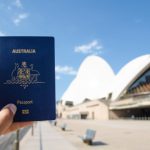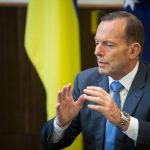Home Affairs Minister’s ‘God-Like Powers’ are Unconstitutional, High Court Rules

The highest court in the land has found that powers drafted by then immigration minister Peter Dutton in 2015 and amended in 2020 which give the minister power to revoke a person’s Australian citizenship are unconstitutional as they breach the doctrine of the separation of powers by empowering the minister to exclusively determine criminal guilt, without judicial oversight.
The full seven-justice bench of the High Court of Australia was tasked with answering several questions regarding section 36B of the Australian Citizenship Act 2007.
The section states as follows:
36B Cessation of citizenship on determination by Minister
(1) The Minister may determine in writing that a person aged 14 or older ceases to be an Australian citizen if the Minister is satisfied that:
(a) the person:
(i) engaged in conduct specified in subsection (5) while outside Australia; or
(ii) engaged in conduct specified in any of paragraphs (5)(a) to (h) while in Australia, has since left Australia and has not been tried for an offence in relation to the conduct; and
(b) the conduct demonstrates that the person has repudiated their allegiance to Australia; and
(c) it would be contrary to the public interest for the person to remain an Australian citizen.
The proscribed conduct
Subsection 36B(5) lists the following relevant conduct:
(a) engaging in international terrorist activities using explosive or lethal devices;
(b) engaging in a terrorist act;
(c) providing or receiving training connected with preparation for, engagement in, or assistance in a terrorist act;
(d) directing the activities of a terrorist organisation;
(e) recruiting for a terrorist organisation;
(f) financing terrorism;
(g) financing a terrorist;
(h) engaging in foreign incursions and recruitment;
(i) fighting for, or being in the service of, a declared terrorist organisation; and
(j) serving in the armed forces of a country at war with Australia.
It is important to notes the words, ‘if the Minister is satisfied that’, which mean a politician can make the decision whether or not a person has been convicted of – or even charged with – any of the above offences.
The questions considered by the High Court
The court was tasked with answering the question of whether “36B of the Australian Citizenship Act 2007 (Cth) invalid in its operation in respect of the plaintiff”.
After finding there was indeed a head of power in the Commonwealth Constitution that supports the power, the court proceeded to find the section was nevertheless invalid because:
“it reposes in the Minister for Home Affairs the exclusively judicial function of punishing criminal guilt”.
‘God like’ powers
Much has been debated about the broad range of ‘God-like’ powers afforded the Federal Home Affairs Minister when making decisions about both citizenship and visas.
Most recently, they have been hotly debated and indeed contested through the court in the context of the plight of the Biloela Family, who were held in detention for four years by the previous Morrison government.
And of course, they were on full display earlier this year when tennis player Novak Djokovic was kicked out of the country ahead of the Australian Open.
But the High Court’s latest decision provides some relief to Australian citizens who face having their citizenships cancelled without even having been convicted of a crime, or after being convicted overseas in tenuous circumstances.
The facts of the case
Deli Alexander was imprisoned in Syria after allegedly joining the Islamic State, a conviction which he disputes.
He served 15 years behind bars and was released after receiving a government pardon.
Although he was technically able to be released from prison, Mr Alexander had nowhere to go because the Australian Government decided in 2021 to strip him of his citizenship.
His lawyers argued in court that the existence of section 36B of the Citizenship Act meant that the Home Affairs Minister was for all intents and purposes the judge, jury and executioner when it comes to determining a person’s guilt – which is something that breaches the constitutionally protected doctrine of the separation of powers.
Six of the seven High Court justices agreed, finding that only courts should have the power to decide whether to cancel a person’s citizenship if they have not been charged or convicted in Australia. .
The laws surrounding immigration, visas and citizenship in Australia are exceptionally complicated, and they have been repeatedly amended, along with other laws, since 9/11, with many human rights activists concerned about the potential implications, as the laws become increasingly authoritarian in nature.
The High Court remarked:
“That sanction by the parliament may be imposed only upon satisfaction of the minister that Mr Alexander engaged in conduct that is so reprehensible as to be deserving of the dire consequence of deprivation of citizenship and the rights, privileges, immunities and duties associated with it.”
“The power to determine the facts which enliven the power to impose such a punishment is one which, in accordance with [Chapter 3] of the Constitution, is exercisable exclusively by a court that is a part of the federal judicature.”
Protecting fundamental democratic rights
Effectively the High Court ruling means that while the Federal Government of the day is able to pass laws relating to citizenship, the consequence of stripping someone’s citizenship without them facing trial on Australian soil is so serious, that it should only be handled by a judge, in a court of law.
The newly-appointed federal Attorney-General Mark Dreyfus and Home Affairs Minister Clare O’Neil have said that they are still assessing the decision. But for the many Australians who have shaken their heads at decisions that have arbitrarily been made by a single minister in recent years, without accountability and very little in the way of transparency, the judgment seems entirely sensible and a solid move towards protecting the fundamental cornerstones of democracy.
Australia is, after all, a democracy, and to hand such sweeping powers to one person really represents a strike against what democracy represents and strikes at the heart of our fundamental right to be considered innocent, until proven guilty.








